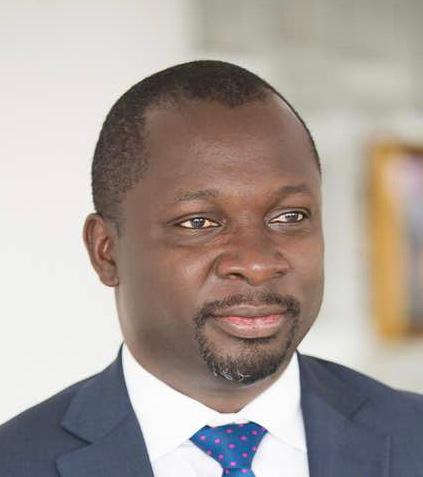Chief Executive Officer of the Ghana Association of Banks (GAB), John Awuah, is confident the Bank of Ghana’s phased approach to implementing the increased Cash Reserve Requirement (CRR) will help banks plan for the 15 percent to come in November.
The Monetary Policy Committee (MPC), after an urgent meeting to review recent developments in the economy and assess risks to the outlook, raised the primary reserve requirement of banks from 12 percent to 15 percent.
It is set to be implemented in a phased manner: that is 13 percent from September 1, 2022; 14 percent by October 1, 2022; and 15 percent by November 1, 2022.
According to Mr. Awuah, though the decision was a shock to the banking sector as they least expected it, the phased introduction will buy a little time for banks to plan for the highest – 15 percent come November 2022.
In an interview with the B&FT, he said: “There was a reasonable expectation that, possibly, the rate may be hiked; but as to Cash Reserve Requirements changing…we thought there weren’t going to be any additional measures, so to that extent it was a bit of shock in the industry.
“The expectation is that there will be some form of liquidity hiccups when the 13 percent, 14 percent and finally 15 percent kick-in. I am sure there is no easy way around it, but at least this phased approach will give the banks a bit of latitude to plan for the ultimate 15 percent come November.”
He said the banks will surely be recalibrating their liquidity profiling to undertake necessary measures to meet the requirement announced by the regulator.
Mr. Awuah noted that the cash reserve hike coupled with other economic factors, in terms of liquidity, is projected to take as much as GH¢5billion additional liquidity from out of the banking industry.
“Our projection is that the cash reserve requirement hike alone will take out more than GH¢3.6billion; but of course, if you add the fact that the recent currency depreciation will increase the reserve requirements on foreign currency deposits – putting extra burden on the banks (as banks make reserves in cedi even for foreign currency deposits), then potentially we could be going somewhere around GH¢4.5billion to GH¢5billion,” he noted.
Meeting the Governor
In response to the recent meeting between the Association and the Governor regarding the hike, he said they came out confident that in the event it becomes required, the central bank as a lender of last resort will be available to assist the industry.
“Already, at 12 percent the industry actually is more or less overheated; it is difficult to come to the conclusion that there is excess liquidity, but the Governor and his team has broader and more data-driven analytics and have come to the conclusion there is still a need to mop-up excess liquidity, which is putting additional pressure on what we are experiencing with the currency and inflation. Yes, the regulator sits at the centre and has a bigger view of the data – and it controls the money supply. So if the central bank says there is excess liquidity … the reasonable belief is that such is the situation,” he added.
All hands on deck to unwind negative outlook
Mr. Awuah also emphasised the necessity for all-hands-on-deck to reverse the economy’s gloomy outlook, and urged the populace to make concerted efforts to stabilise the system.
“We all have a duty to begin reversing the negative outlook. If you do not need dollars now, do not buy. Do not add to existing pressures. You are just adding to the speculative side of the currency depreciation, which in my view is the key driving force impacting the cedi into whatever environment it finds itself now. So if we want a good outlook as Ghanaians, we must also take our duty to ensure a positive outlook seriously. If you want to see a stable currency and slower inflation, then we also have a duty to perform.
“If you buy dollars now when you need it in November, what you are doing is creating a problem for those who actually need dollars now for importation or any other activity,” he said.










